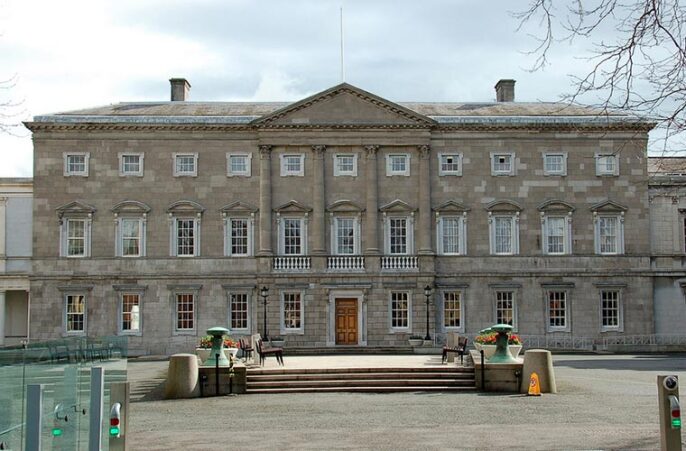A member of Cork City Council has called for an end to saying a prayer at the start of council meetings, appealing to the principle of the ‘separation of Church and State’. Cllr Pádraig Rice noted that more than 50 years ago, the people of Ireland voted to remove the special position of the Catholic Church from the 1937 Constitution. “That seems to have been ignored by Cork City Council. With the prayer and the crucifix, it still feels like 1930s Ireland in there,” he said.
But prayers are not just said at council meetings, they are also said at the start of sessions of the Dail and Seanad. However, the origins of this tradition are not so much a legacy of our Catholic history, and are much more connected to British parliamentary practice, which we follow.
The custom of beginning official proceedings with a prayer is found in a lot of countries that follow the British parliamentary tradition, including the UK itself, the US, Canada, Australia and South Africa.
In the UK, prayers have been a fixture in Parliament since around 1558. Every sitting of both the House of Commons and the House of Lords begins with prayers led by the Speaker’s Chaplain in the Commons and a senior bishop in the Lords.
The Northern Ireland Assembly begins with a silent period of prayer or reflection. The Scottish Parliament, instead, has a multi-religious ‘Time for Reflection’ at the beginning of each week. Ireland and Malta, which were both under British rule, are the only European countries maintaining this tradition of initial prayers.
Aside from the countries listed above, others that have prayers at the start of parliamentary meetings are Kenya, Uganda, Ghana, and Namibia, again all of which have historical ties to the UK.
In contrast, this is much less common in French-speaking African countries, with Muslim-majority Senegal being an exception. Beginning with the French Revolution, France has enforced a very strict form of secularism, often more than in the US which is almost founded on the separation of Church and State, even though religion remains a prominent feature of public life.
In Asia, the Indian Parliament traditionally begins its sessions with a short silent prayer or meditation. Pakistan and Bangladesh start their parliamentary sessions with a recitation from the Quran, while in Sri Lanka, prayers from different religious traditions are offered. Again, these countries have historical links with Britain, all being former colonies.
In South America, where Catholicism is traditionally prevalent, formal prayers at the beginning of parliamentary sessions are not customary, with these countries often emphasising the secular nature of their state procedures. Nonetheless, in Europe, some religious elements are still present in legislative bodies even if formal prayers are not common. For instance, a survey by the Oireachtas Library and Research Service found that 10 European countries have a parliamentary chapel or prayer room, and 18 offer religious services within their premises or outside, usually at the start of the year or on special occasions such as Christmas or commemorations. In the United States, both the House of Representatives and the Senate have chaplains.
While prayer before proceedings is more of a British tradition, religious iconography in public venues is prevalent in other European traditions. Crucifixes are commonly displayed in public buildings, including government offices and schools, in Italy, Poland, Austria, and some parts of Germany. An absolute ban on such displays is instead a key feature of the French concept of laïcité. Many European countries also have crosses in their flags, a heritage of Christianity, even if the religious symbolism is largely lost today.
Praying before parliamentary work has deep historical roots in many legislative bodies worldwide, and the practice varies significantly across different countries, reflecting diverse cultural and religious landscapes.
In Ireland, in 2017, after numerous calls to end the tradition, the Oireachtas decided to retain the daily prayer at the start of each business day. Additionally, a 30-second period of silent reflection was incorporated into the Standing Orders. This compromise appears to be a reasonable solution that accommodates individuals of all faiths or none. Removing the prayer entirely would not only have dismissed a long-established and deeply felt custom but also denied a brief yet meaningful moment that many consider important. This approach balances respect for tradition with inclusivity for a diverse population.

















